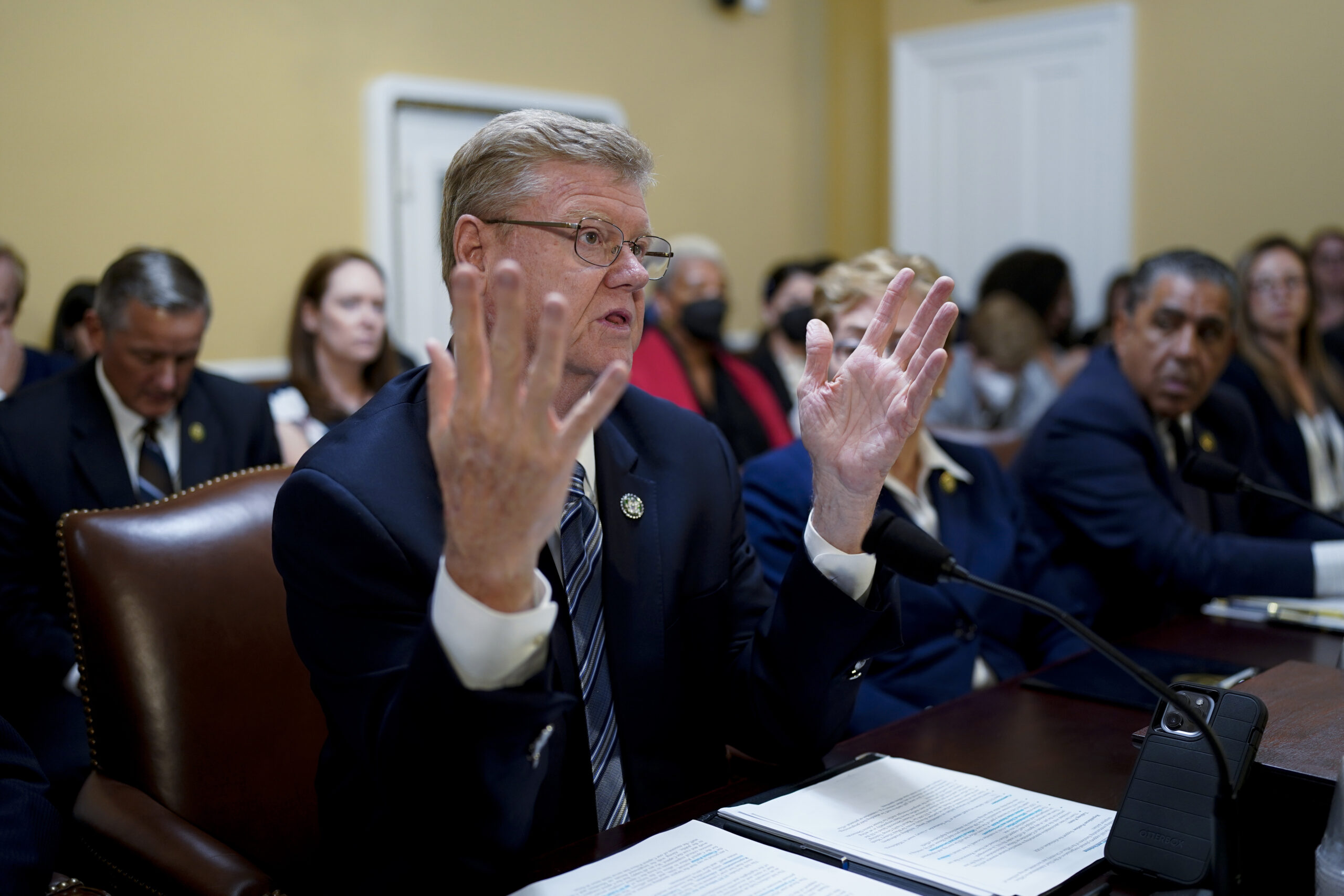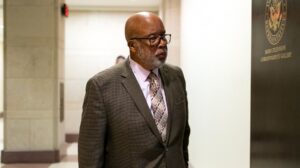Politics
After Trump’s win, it’s time for Democrats to throw out the old playbook

This is an adapted excerpt from the Nov. 10 episode of “Inside with Jen Psaki.”
Since last week’s electionI’ve spent a lot of time thinking about what just happened. I’m sure you have, too. I’m trying not to wallow in it, though if you’re doing a little wallowing, I get it. Mostly I’m trying to learn from it and think about what comes next.
Because now is a time to reflect and be humble. It’s also a time to be very, very curious. I know there’s an instinct right now to try to find some very clear-cut explanationbut, the truth is, there isn’t just one.
No one American, and no one group of Americans, owes anyone their vote.
If there’s one thing I know, it’s that there were lots of factors at play here. Yes, there have been some major trends wiping out incumbents all across the world post-Covid. Yes, there is a lot of sexism and racism in our country — something that definitely exists and something that can be frustratingly hard to measure. And yes, Vice President Kamala Harris ran a campaign in just 107 days.
During those 107 days, she did have moments of complete brilliance. The debate and the Democratic National Convention both come to mind. Many of us thought she might be able to overcome the burden of an unpopular governing party, introduce herself to voters, bring back the members of the Democratic coalition who had left and massively outperform every single global trend. Maybe that was an insurmountable expectation all along, especially on a short timeline.
But beyond those structural challenges, we also need to be clear-eyed about some hard truths in the results from election night. President-elect Donald Trump improved his share of the vote with almost every demographic group. He improved with men, women, young people and Latinos. If that’s not a hard truth, I don’t know what is.
While we try to understand why that happened, I think there might be an instinct to assign blame to this demographic or that demographic. But despite how hard this moment is and how challenging the years ahead will be, we have to resist that urge.
That’s just not how democracy works. Winning elections is about convincing more voters that you are the right choice. No one American, and no one group of Americans, owes anyone their vote. People choose with their own free will who they think better represents their interests. People are either motivated to turn out to support what a party is offering, or they aren’t. And we need to reflect on that.
We need to reflect on why an anti-labor, anti-working-class candidate won voters who didn’t go to college; why an anti-immigrant candidate who ran on the promise of deporting millions of people made historic gains with Latino voters; and why a country that ranks democracy as one of its top issues elected the guy who promised to be a dictator on Day 1.
Man, those are big questions, and it might be a while before we have answers to all of them.
But there were also some bright spots, including the election of Sen.-elect Elissa Slotkin in Michigan and the re-election of Sens. Tammy Baldwin of Wisconsin and Jacky Rosen of Nevada. Arizona’s Ruben Gallego is leading in his Senate race, too. Those races all happened in states Trump won, and those candidates all outperformed the top of the ticket.
What I do know for sure is that not nearly enough people turned out to vote for what the Democratic Party was selling nationally. I look at this from my vantage point as a college-educated white person, which is one of the only demographics Trump didn’t increase his share of the vote with, and I can tell you that the message of the party is geared too much toward me.
I happen to believe that Trump is a major threat to our democracy. I believe that as much today as I did this time last week. Fascism is a threat. A dire one. So is authoritarian leadership. I believe that in my bones, and I believe it’s what we’re facing.
But clearly that message just didn’t connect with enough people, and maybe it was the wrong closing message. Too many people either didn’t buy it and didn’t show up or were willing to price in the risk because other issues were more important to them.
The answer to that failure isn’t to say fascism doesn’t matter or to say everyone who didn’t vote for Harris is to blame for not hearing or understanding the threat; it’s for candidates to rethink how they prioritize what they talk about, to rethink how they engage.
Part of the answer here is to stop diagnosing and start listening. Over the last few days, I thought a lot about my first presidential campaign in 2004, because I think there are some important lessons there. For one, it produced an outcome that also made very little sense at the time. It did not make any sense that the country chose George W. Busha man who had started a deeply unpopular war in Iraq, over John Kerrya decorated Vietnam War veteran who had spoken out against it — but they did.
Even amid exhaustion and anger, it’s important that we don’t fall into the trap of believing that things can’t get better or that we can’t get to the other side of this.
Kerry’s loss left the Democratic Party with a huge leadership vacuum, and it turns out, vacuums can be a good thing. Two years later, the country rejected Bush’s failed presidency and Democrats won back the House for the first time in 12 years, making Rep. Nancy Pelosi the first female speaker.
Two years after that, the Democratic electorate, after a hard-fought primary with good candidateschose a Black man with the middle name Hussein over the party establishment candidate as their nominee. And the country chose that same man, Barack Obama, to be their president,twice.
I traveled with him to nearly every event he did on both presidential campaigns. I can tell you that he won by throwing out the old playbook and showing up for years to places people didn’t expect. He won by being fearless. He refused to accept the notion that the country would only elect someone who looked or sounded a certain way.
He did it by believing that “Yes, we can” as a country. The man is a once-in-a-generation speaker, but he didn’t win by talking at people. He won by listening. He won by listening to the country and charting a new path forward based on what he heard.
So, I know you are feeling confused, upset and pissed off. I’m sure you’re feeling exhausted. I get it. But as painful as it is right now, even amid that exhaustion and anger, it’s important that we don’t fall into the trap of believing that things can’t get better or that we can’t get to the other side of this.
Because they can and we can. So let’s listen carefully, let’s learn a lot, let’s be super curious and let’s get to work.
Politics
DHS watchdog details extensive probes into Trump’s immigration crackdown
The investigations include reviews of hiring, interior immigration enforcement and expedited removal of individuals by ICE and CBP…
Read More
Politics
Nevada Republican Mark Amodei to retire

Amodei’s decision comes just three months after President Donald Trump blessed him with a “Complete and Total endorsement for Re-election…
Read More
-

 The Dictatorship12 months ago
The Dictatorship12 months agoLuigi Mangione acknowledges public support in first official statement since arrest
-

 Politics12 months ago
Politics12 months agoFormer ‘Squad’ members launching ‘Bowman and Bush’ YouTube show
-

 The Dictatorship5 months ago
The Dictatorship5 months agoMike Johnson sums up the GOP’s arrogant position on military occupation with two words
-

 Politics12 months ago
Politics12 months agoBlue Light News’s Editorial Director Ryan Hutchins speaks at Blue Light News’s 2025 Governors Summit
-

 The Dictatorship12 months ago
The Dictatorship12 months agoPete Hegseth’s tenure at the Pentagon goes from bad to worse
-

 Politics12 months ago
Politics12 months agoFormer Kentucky AG Daniel Cameron launches Senate bid
-
Uncategorized1 year ago
Bob Good to step down as Freedom Caucus chair this week
-

 Politics10 months ago
Politics10 months agoDemocrat challenging Joni Ernst: I want to ‘tear down’ party, ‘build it back up’








